Sam Beauford Woodworking Institute Branches Out
This WCA EDUcation™ member is expanding its woodshop to accommodate more equipment and programs.
The Sam Beauford Woodwork Institute of Adrian, MI, truly offers something for everybody from organizing woodshop camps for the local Boys and Girls Club through training adults for woodworking careers.
Founded five years ago to provide hands-on instruction to woodworking hobbyists and serious amateurs, the SBWI is already embarking on its second expansion that will nearly double the size of its operation. In recent years, hand tools and classic woodworking machines – staples of any woodshop – have been augmented by a pair of CNC routers. As the shop has evolved, new programs have been created, including Woodworking Technology Courses designed around the Woodwork Career Alliance of North America’s skill standards and Passport program.
SBWI is the brainchild of Luke Barnett, an accomplished woodworker who built a business and reputation making American Windsor chairs. Now, he’s winding down that enterprise to devote his full attention to teaching and directing SBWI, named in the memory to his dearly departed shop dog, Sampson.
“We started the Sam Beauford Woodworking Institute in a four-car garage,” Barnett says. “The start-up funding came from my Windsor chair money. The first class’ project was making a six-board chest out of poplar using only hand tools from my chair making business. We didn’t even have a bathroom or heat.
“Fortunately, we had enough interest and the program started to take hold. We bought better tools and moved into a bigger and better space,” Barnett adds. “We’re now a 501(c)3 non-profit with a 12-member board of directors. Rather than using my Windsor chair money to fund the school, I actually draw a salary.”
‘Kind of Blown Away’
A few years ago, the stars aligned to bring SBWI and WCA together. As Barnett explains, “Throughout the whole process of attending seminars and networking, I met a lot of people and was kind of blown away by how desperate the woodworking industry is to find people to get into it.”
Barnett saw the industry’s skills gap challenge as an opportunity for SBWI. He met with representatives of Lenawee Intermediate School District to discuss expanding its Linked Lenawee, a state-funded, free adult education and training program, to include woodworking. Barnett then researched woodworking credentialing programs and discovered the WCA. Intrigued, he placed several phone calls, including one to Jim Wellever, chief instructor of the Michigan Career Technical Institute and a long-time WCA EDUcation member. Soon after, Barnett joined the WCA and set about developing the SBWI’s workforce development program around the WCA’s skill standards and credentialing system.
“Jim Wellever has been a big help in getting our adult skills education started and our curriculum in order,” Barnett says. “He’s not only been huge in giving us advice, he’s even donated some equipment to us.”
SBWI’s Wood Systems Technology program has two levels, each consisting of twice-weekly, four-hour classes over a 12-week semester.
Level One is “output oriented.” On the first day of class, students are issued a WCA Passport. It is their personal, permanent record of their woodworking achievements that is maintained and updated in WCA’s online database. They learn safe operation of various machines and tools that are already setup to produce wood parts to specification. They are also evaluated on WCA skill standards related to what they have learned to earn tool points that are recorded in their Passports. At the conclusion of Level One, students are tested to earn their WCA Sawblade Certificate.
Level Two is “set-up oriented.” Students perform machine setups and tool preparation, plus select and use jigs, fixtures and appropriate materials as required by the plans and specs they are given. They also learn how to use the Vectric VCarve software and operate the shop’s CAMaster Stinger and 4×8 ShopBot PRS Alpha CNC routers. They complete the course adding dozens of tool points to their Passport.
Putting Students to Work
Each of SBWI’s adult certification classes is limited to eight students. Most of them are novices. They come from all walks of life. Many have never held a full-time job and are looking to get their lives in order, some are recent high school graduates and others are looking to make a career change.
“These are people who want to go into the woodworking industry,” Barnett says. “We vet our students. If they don’t want to become a professional woodworker, then we don’t want them in our class.”
Tuition is $2,000 per semester. About half of the students pay out of their own pockets; the other half receive some form of financial assistance, including through Linked Lewanee, Barnett says.
As would be expected, there is no shortage of area woodworking companies interested in hiring SBWI’s graduates. Barnett says rarely does a week go by that he doesn’t receive a phone call from a prospective employer. “A lot of times, I wind up interviewing them. I want to make sure they understand that we’re trying to show our students that woodworking can be a long-lasting and lucrative career.”
“The student’s Passport documenting his ability to use a table saw and other equipment is like his job resume,” Barnett says. “Our students may not be trained on a specific operation or machine that a company needs, but they have an excellent base to learn. They are not entry-level employees. They have value and deserve to be paid what they are worth. Basically, I tell my students not to accept a job for less than $15 an hour. If the woodworking industry doesn’t want to fork out money for their employees, then kids aren’t going to want to be woodworkers. I think $15 is a fair wage for someone with this amount of training who is just starting out. Most of the companies I speak to don’t have a problem with that.”
Five-Year Goals
Barnett is excited about the future growth prospects of SBWI. Looking ahead five years or so from now, Barnett says he would like to add more sophisticated CNC equipment and software. “I think certifying 100 students a year would be a good goal for our program,” Barnett says. “Of course, we would have to hire more teachers to do that.”
“I really need to get out of chairmaking so that I can focus all of my time on growing our program,” Barnett says. “I still have orders that I owe to customers. But the honest truth is I’m sick of making chairs. I’d rather teach and watch people succeed. The best reward for me is when a student starts making money in the wood industry.”
SBWI’s Wood Systems Technology program has two levels, each consisting of twice-weekly, four-hour classes over a 12-week semester.
Level One is “output oriented.” On the first day of class, students are issued a WCA Passport. It is their personal, permanent record of their woodworking achievements that is maintained and updated in WCA’s online database. They learn safe operation of various machines and tools that are already setup to produce wood parts to specification. They are also evaluated on WCA skill standards related to what they have learned to earn tool points that are recorded in their Passports. At the conclusion of Level One, students are tested to earn their WCA Sawblade Certificate.
Level Two is “set-up oriented.” Students perform machine setups and tool preparation, plus select and use jigs, fixtures and appropriate materials as required by the plans and specs they are given. They also learn how to use the Vectric VCarve software and operate the shop’s CAMaster Stinger and 4×8 ShopBot PRS Alpha CNC routers. They complete the course adding dozens of tool points to their Passport.
Putting Students to Work
Each of SBWI’s adult certification classes is limited to eight students. Most of them are novices. They come from all walks of life. Many have never held a full-time job and are looking to get their lives in order, some are recent high school graduates and others are looking to make a career change.
“These are people who want to go into the woodworking industry,” Barnett says. “We vet our students. If they don’t want to become a professional woodworker, then we don’t want them in our class.”
Tuition is $2,000 per semester. About half of the students pay out of their own pockets; the other half receive some form of financial assistance, including through Linked Lewanee, Barnett says.
As would be expected, there is no shortage of area woodworking companies interested in hiring SBWI’s graduates. Barnett says rarely does a week go by that he doesn’t receive a phone call from a prospective employer. “A lot of times, I wind up interviewing them. I want to make sure they understand that we’re trying to show our students that woodworking can be a long-lasting and lucrative career.”
“The student’s Passport documenting his ability to use a table saw and other equipment is like his job resume,” Barnett says. “Our students may not be trained on a specific operation or machine that a company needs, but they have an excellent base to learn. They are not entry-level employees. They have value and deserve to be paid what they are worth. Basically, I tell my students not to accept a job for less than $15 an hour. If the woodworking industry doesn’t want to fork out money for their employees, then kids aren’t going to want to be woodworkers. I think $15 is a fair wage for someone with this amount of training who is just starting out. Most of the companies I speak to don’t have a problem with that.”
Five-Year Goals
Barnett is excited about the future growth prospects of SBWI. Looking ahead five years or so from now, Barnett says he would like to add more sophisticated CNC equipment and software. “I think certifying 100 students a year would be a good goal for our program,” Barnett says. “Of course, we would have to hire more teachers to do that.”
“I really need to get out of chairmaking so that I can focus all of my time on growing our program,” Barnett says. “I still have orders that I owe to customers. But the honest truth is I’m sick of making chairs. I’d rather teach and watch people succeed. The best reward for me is when a student starts making money in the wood industry.”


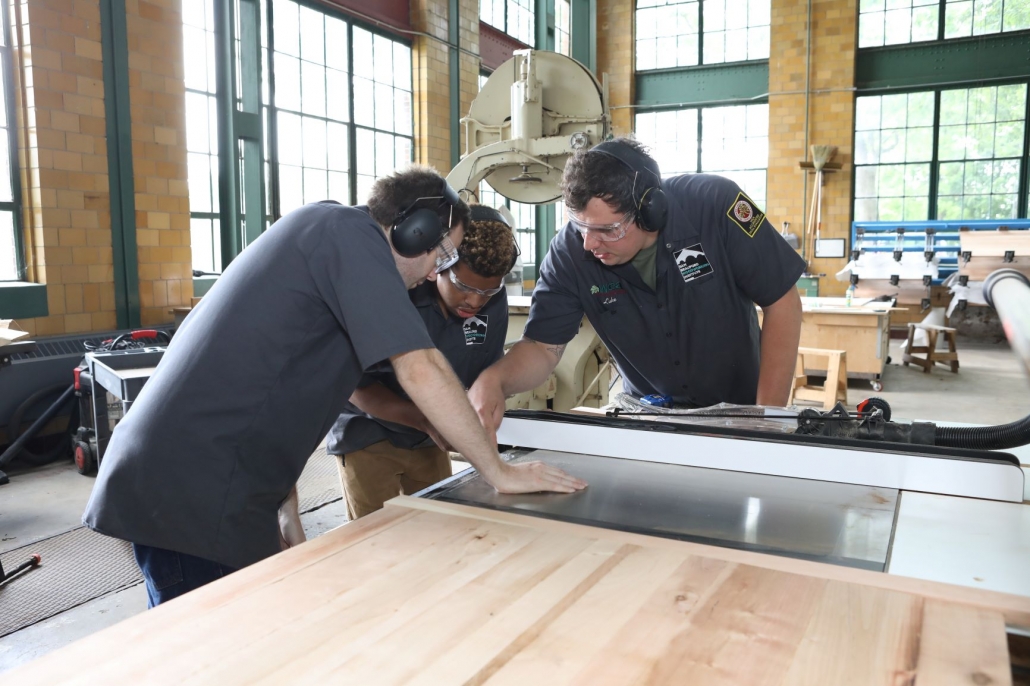
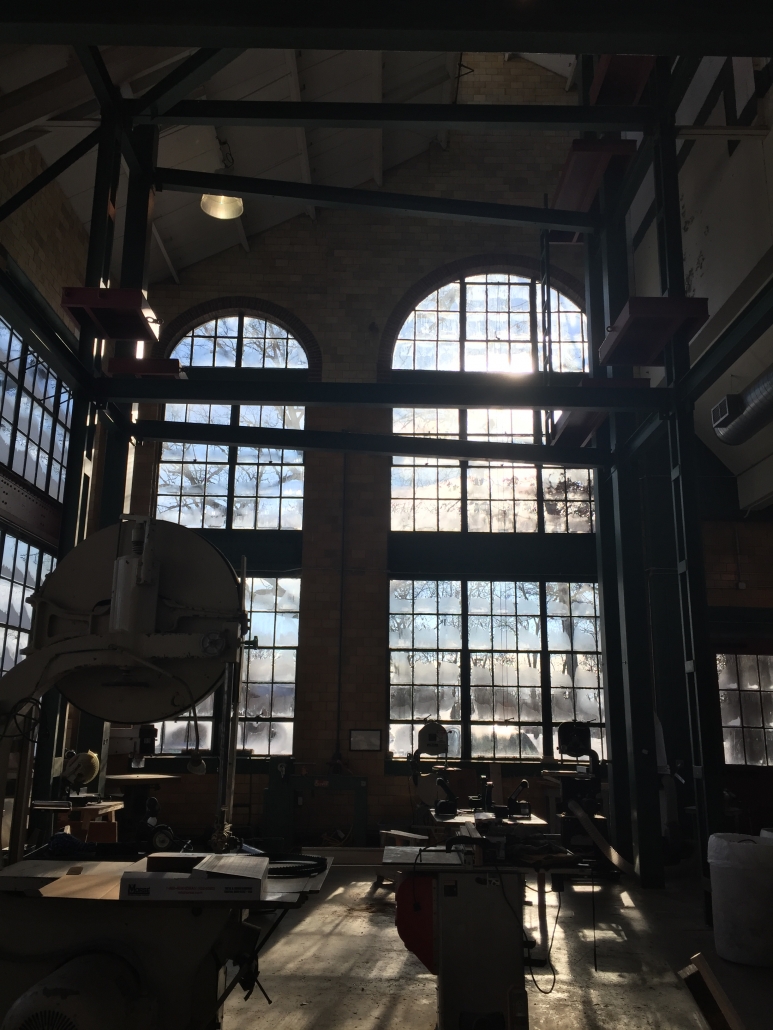
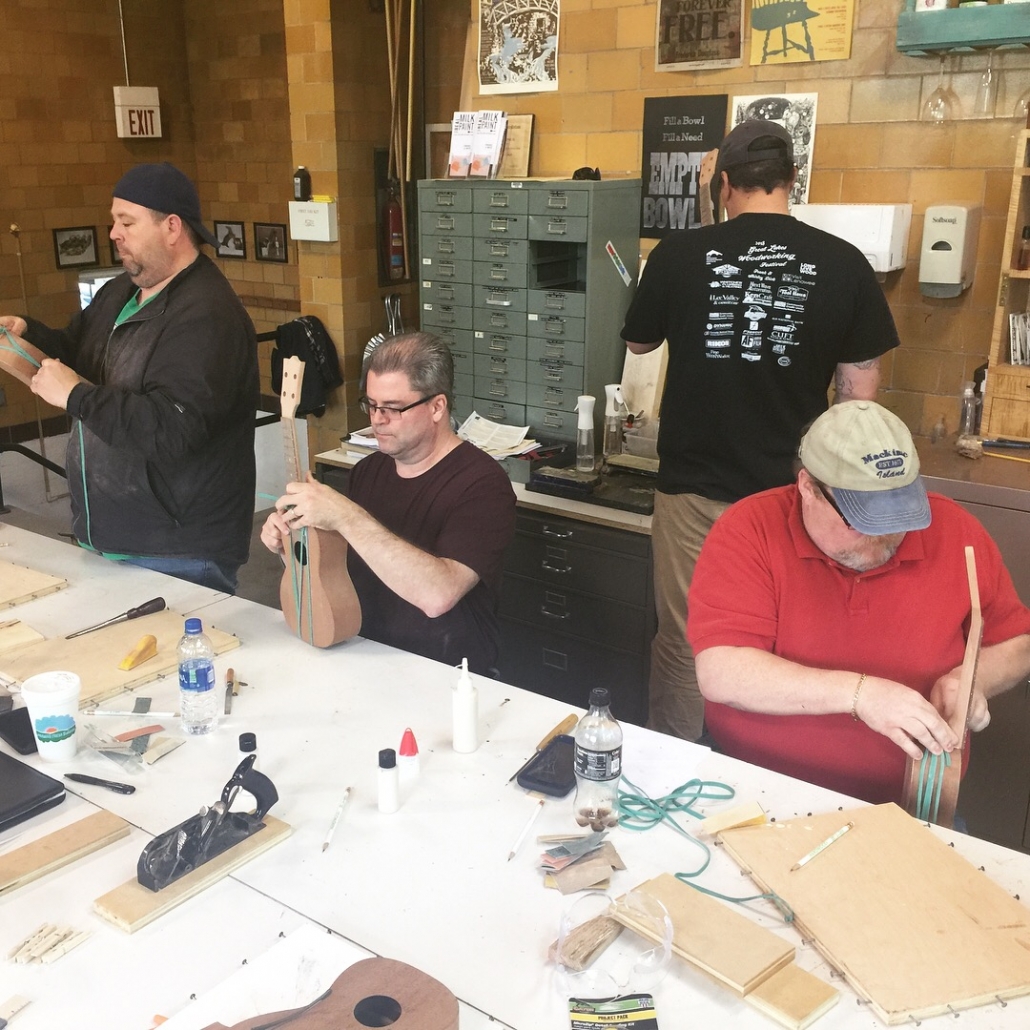
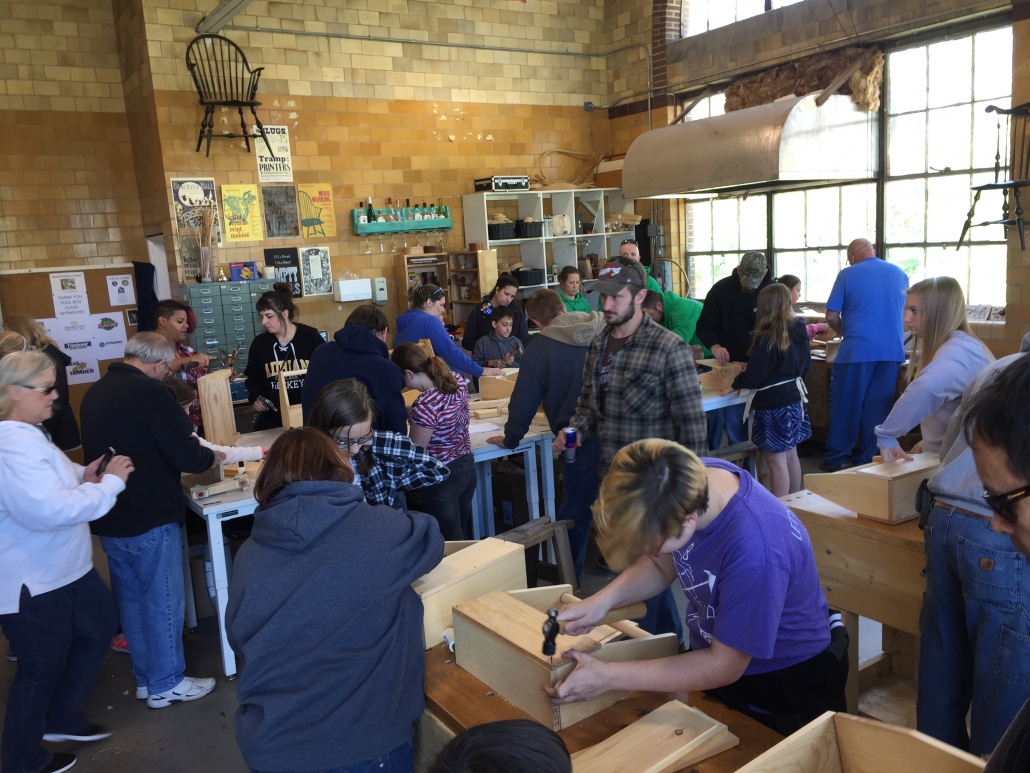
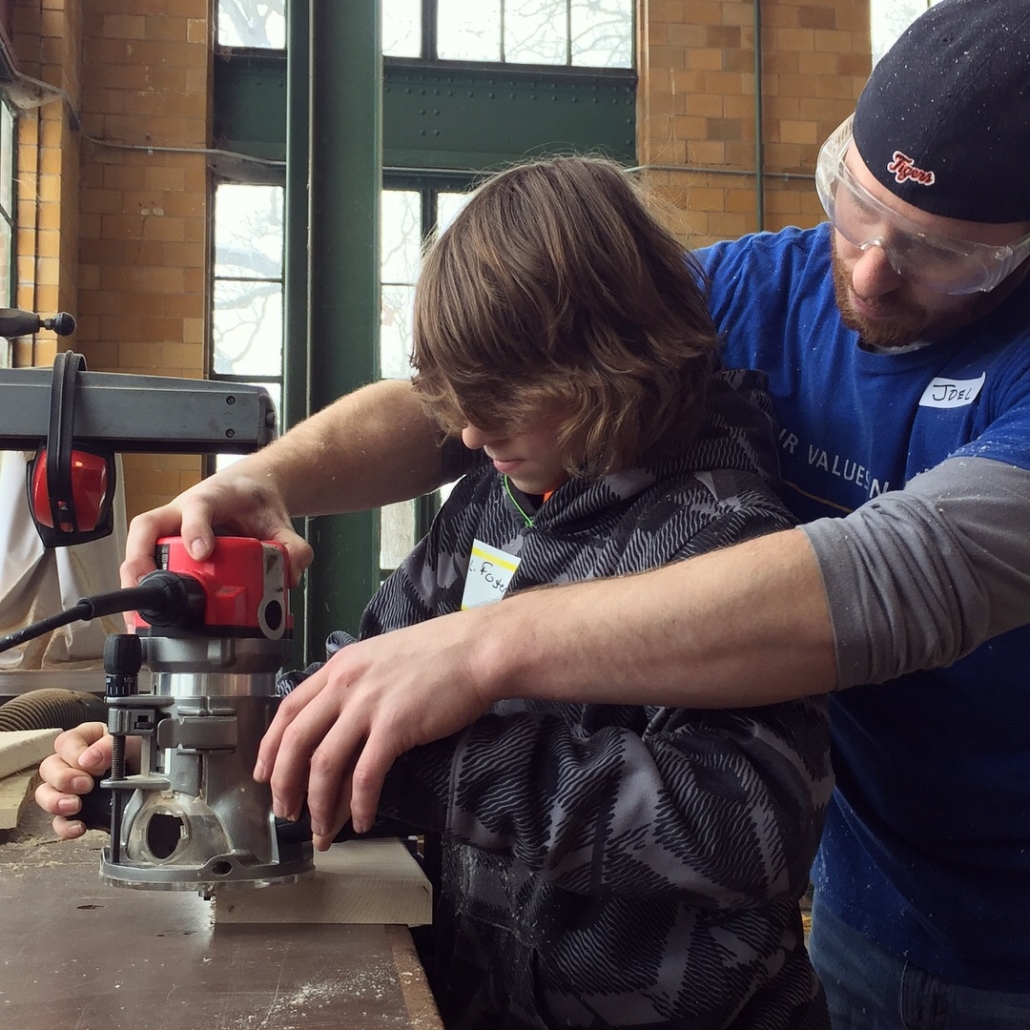
Leave a Reply
Want to join the discussion?Feel free to contribute!